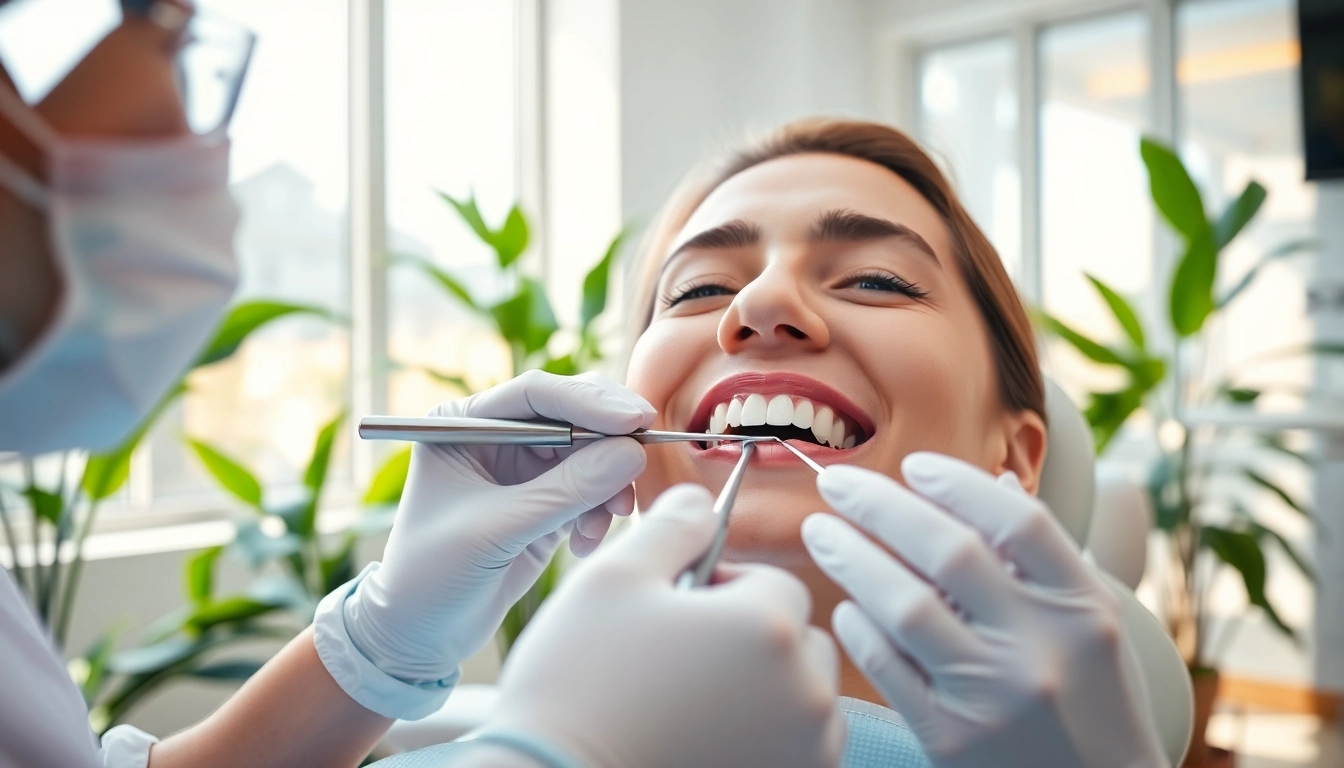Understanding Dental Cleanings
Dental cleanings are a vital aspect of maintaining optimal oral health. They not only help in preventing dental diseases but also ensure that your smile remains bright and vibrant. Understanding what dental cleanings entail, their importance, and how they are performed can empower you in your journey towards a healthier mouth. Engaging in regular dental cleanings can significantly enhance your dental outcomes and overall well-being.
What Are Dental Cleanings?
Dental cleanings are professional procedures conducted by dental hygienists or dentists aimed at removing plaque, tartar (hardened plaque), and stains from the teeth. This process helps to prevent gum disease and cavities, as well as to maintain the overall health of your teeth and gums. Dental cleanings typically involve two primary stages—scaling and polishing—along with an evaluation of oral health.
Why Are Dental Cleanings Important?
Regular dental cleanings are crucial for several reasons:
- Prevention of Oral Diseases: Plaque buildup can lead to periodontal diseases and cavities. Routine cleanings help in preventing these conditions by eliminating harmful bacteria.
- Early Detection of Problems: During the cleaning process, dental professionals can identify early signs of dental diseases, allowing for timely intervention.
- Improved Overall Health: Oral health is directly linked to overall health. Chronic dental issues can contribute to cardiovascular diseases and diabetes. Maintaining good oral hygiene through cleanings can reduce these risks.
- Fresh Breath: Clean teeth and gums help eliminate bad breath caused by food particles, plaque, and bacteria.
How Often Should You Schedule Dental Cleanings?
The American Dental Association (ADA) recommends that individuals schedule dental cleanings at least twice a year. However, the frequency may vary based on individual needs:
- Every 6 Months: This is standard for most individuals, especially those with good oral health.
- Every 3-4 Months: People with gum disease or other dental health issues may require more frequent cleanings.
- Personalized Schedule: Consult your dentist; they may recommend a care plan based on your unique dental health history.
The Dental Cleaning Process
Initial Examination and Assessment
Before the cleaning begins, your dentist or hygienist will conduct a thorough examination of your teeth and gums. This process may include:
- X-Rays: To check for deeper issues, such as cavities or bone loss.
- Visual Inspection: Look for signs of gum disease, tooth decay, or other oral health issues.
Steps Involved in Dental Cleanings
The dental cleaning process typically follows these steps:
- Scaling: This involves using handheld instruments or ultrasonic tools to remove plaque and tartar from the surfaces of the teeth and below the gum line.
- Polishing: Following scaling, the hygienist will polish the teeth with a gritty toothpaste and a polishing tool to remove surface stains.
- Flossing: Expert flossing is performed to ensure that all plaque is removed from in-between the teeth.
- Fluoride Treatment: A fluoride treatment may be applied to help strengthen the enamel and prevent cavities.
Post-Cleaning Care and Advice
After your dental cleaning, the hygienist may provide you with advice on maintaining your oral health. This could include:
- Recommendations for toothpaste and mouthwash.
- Tips for brushing and flossing effectively.
- Advice on dietary choices that influence oral health.
Types of Dental Cleanings
Regular Dental Cleanings
Also known as prophylaxis cleaning, this is the most common type of dental cleaning. It focuses on preventing oral diseases in individuals who maintain good oral health. Regular cleanings involve removing plaque and tartar buildup from all applicable surfaces of the teeth, using specialized instruments.
Deep Cleanings for Gum Health
Deep cleanings, also known as scaling and root planing, are necessary for patients with gum disease. This procedure goes beyond standard cleaning by removing plaque and tartar from below the gum line and smoothing out the roots of the teeth. By doing so, it promotes healing of the gums and helps reduce the risk of further infection and tooth loss.
Preventative Cleanings for Maintaining Oral Health
Preventative cleanings can be customized based on individual risk factors, such as history of cavities or gum disease. Your dentist may recommend specific types of cleanings to the prevent potential health issues based on your oral health status.
Common Concerns About Dental Cleanings
Does Dental Cleaning Hurt?
Many patients express concern about potential discomfort during dental cleanings. While some sensitivity may occur, particularly during deep cleanings, dental professionals prioritize patient comfort. Techniques such as local anesthesia can be used to minimize discomfort. Additionally, communicating openly with your dental hygienist can help address any anxieties before the procedure begins.
Dealing with Dental Anxiety
Dental anxiety is quite common; however, it should not impede your oral health. Techniques to manage anxiety include:
- Controlled breathing exercises before and during dental visits.
- Listening to music with headphones to create a more calming environment.
- Seeking sedation dentistry options if anxiety is significant.
Addressing Myths About Dental Cleanings
There are numerous myths surrounding dental cleanings. Clarifying these misconceptions is vital for encouraging regular dental visits:
- Myth: Dental cleanings are unnecessary if I brush and floss regularly.
- Myth: Cleanings are painful and traumatic.
- Myth: Regular cleanings are just a way for dentists to make money.
Understanding the truth behind these myths can help promote the importance of maintaining regular cleanings.
Choosing the Right Dental Provider
What to Look for in a Dentist
Selecting the right dental provider is essential for a positive dental experience. Consider the following factors:
- Qualifications: Ensure the dentist is licensed and has relevant certifications.
- Experience: Look for a dentist who specializes in the treatments you need.
- Compassionate Care: Choosing a provider who prioritizes patient comfort can help ease anxiety.
Questions to Ask Before Your Appointment
It’s beneficial to ask potential dental providers the following questions:
- What is the dental cleaning process like in your office?
- Do you offer sedation options for anxious patients?
- How do you handle patients with unique health considerations?
How to Find Local Dental Cleaning Services
Finding a reputable local dental service can be accomplished through:
- Online reviews and ratings on platforms such as Google or Yelp.
- Referrals from friends, family, or healthcare providers.
- Checking local dental associations or directories for accredited professionals.



